Interview: Partisan
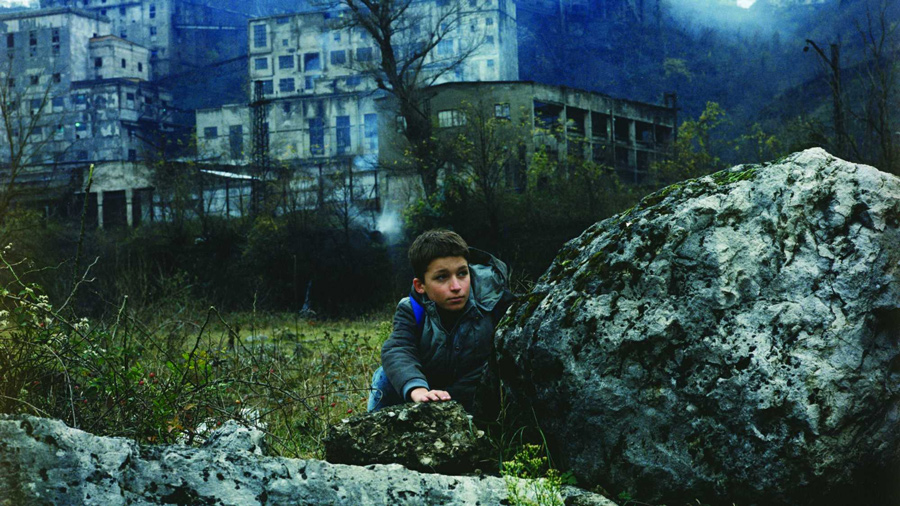
Australian director Ariel Kleiman has made an absorbing feature debut with Partisan, a fable-like tale of child assassins under the control of Vincent Cassell that is playing as part of the NZ International Film Festival. We spoke to Kleiman about his film, working with child actors, and preserving a sense of mystery for the audience.
FLICKS: Good morning, Ariel. How are you doing?
ARIEL KLEIMAN: Pretty good, how are you?
I’m okay, but I watched half of your film last night and half of it this morning, and I had some really fucking weird dreams, man.
Oh shit [chuckles].
No worries. I think it’s a compliment, I guess.
Yeah, nightmares, that’s a big compliment [laughter].
There is a kind of a dreamlike quality of the film. So little is clearly spelled out, and I think it does have a bit of dream logic to it. Would you think that’s a fair comment?
Yeah, totally. It’s definitely told in this very, as you say, dreamy logic [chuckles]. It’s a little naive, it’s told from the perspective of a young boy. So a lot of that tone comes from him and his relationship with Gregori and his mum.
There’s a really strong internal consistency, but as the audience, you’re deprived of a lot of information.
Yeah. I guess from the start the way we conceived the film and the script, is that we wanted to tell the story from the perspective of Alexander, who’s the young boy who goes through this one year of his life and starts to see surroundings in a new light. The most interesting and impactful way to tell the story would be to put the audience in his shoes and only hear the information and context that he’s given, and anything outside of that didn’t feel right for the audience to know.
To be honest, I find in general movies these days just spoon-feed me too much information. I feel like mystery and cinema are such a magical combination. And I know we live in such a information age at the moment, and maybe subconsciously we’re rebelling against that a little, but I really liked the idea of imbuing the film in mystery and telling it from his perspective.
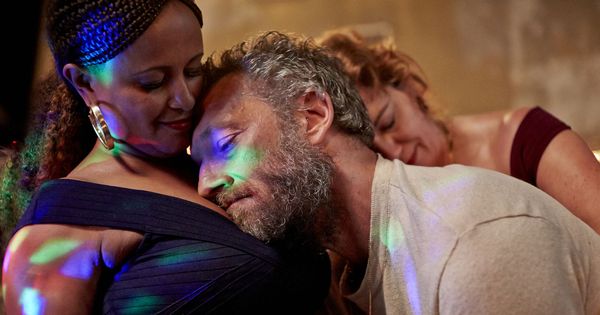
One of the many mysteries is how a group of women and children came to live together in quite a commune-like existence, with one charismatic man at the centre of their community.
We saw Susanna, Alexander’s mother, as the voice in a way for all the women. It’s really her story that we see in most detail. We meet her in the beginning when she’s all alone in the hospital, clearly not in the best way. And, in a way, we were very inspired by these kids in Colombia who are being convinced by these drug lords to kill people for money. And the common thing was all these kids is all have single mothers. These kids have no paternal presence in their lives, and these men kind of exploited that.
Also, a similar scenario was actually the case with Pablo Escobar. At one point in his life he had a compound where he had a lot of single mothers living with him, and he provided them shelter and warmth and love, and he’d also use their kids and corrupt their kids for his own good. It was more that was more the inspiration rather than having interest in specifically exploring the inner workings of a cult.
The kids are a resource for Gregori really, they’re tools of his, but they also a bit of resource for his own emotional needs.
That was a fascinating thing about making this film, that basically the whole world of the film is created by this one character, Gregori. Really, the more we dug into his character the more he inspired us on how we should create this world from scratch. A big part of his character, we felt, was that when we meet him in the film he’s a very lonely man, and the thing that he wants is a family. And in many ways he’s living a childhood throughout the film that he never had. And the way we wrote him we felt like he was coming from a genuine place, he really does want to give these kids everything he never had. But the tragedy of the film and the character is that he’s incredibly damaged and he’s incredibly narcissistic and throughout the film I guess Alexander comes to see that.

It’s a bit of a tragic address that Gregori gives to Alexander when he’s warning him of the dangers of the outside world, and how he’s created a safe place to let people live in, because clearly there’s been some unspecified trauma that’s happened to him. But at the same time, the world he’s sending these kids out into is a really ruined city where things seem pretty screwed.
Yeah. That’s the great thing about creating a bit of mystery is that we liked the idea of experiencing the outside world from Alexander’s perspective too, and he has only been told it’s a dark, cruel world, and that’s the way we wanted to portray it. Because even as a kid, I remember being told that there was an area in Melbourne that I should never go at night, because if I went there I’d be bashed or robbed or worse. And I remember going there once as a kid, basically obviously not listening to my parents, and just going there at night. For 15 minutes it did feel like that. It felt like a really scary hellish street, but then two hours later you start to feel comfortable and you start to see, sure there is bad stuff, but there’s good stuff too. That sort of feeling was something we were interested in exploring, the process of a child’s blinkers slowly widening and starting to see things for themselves.
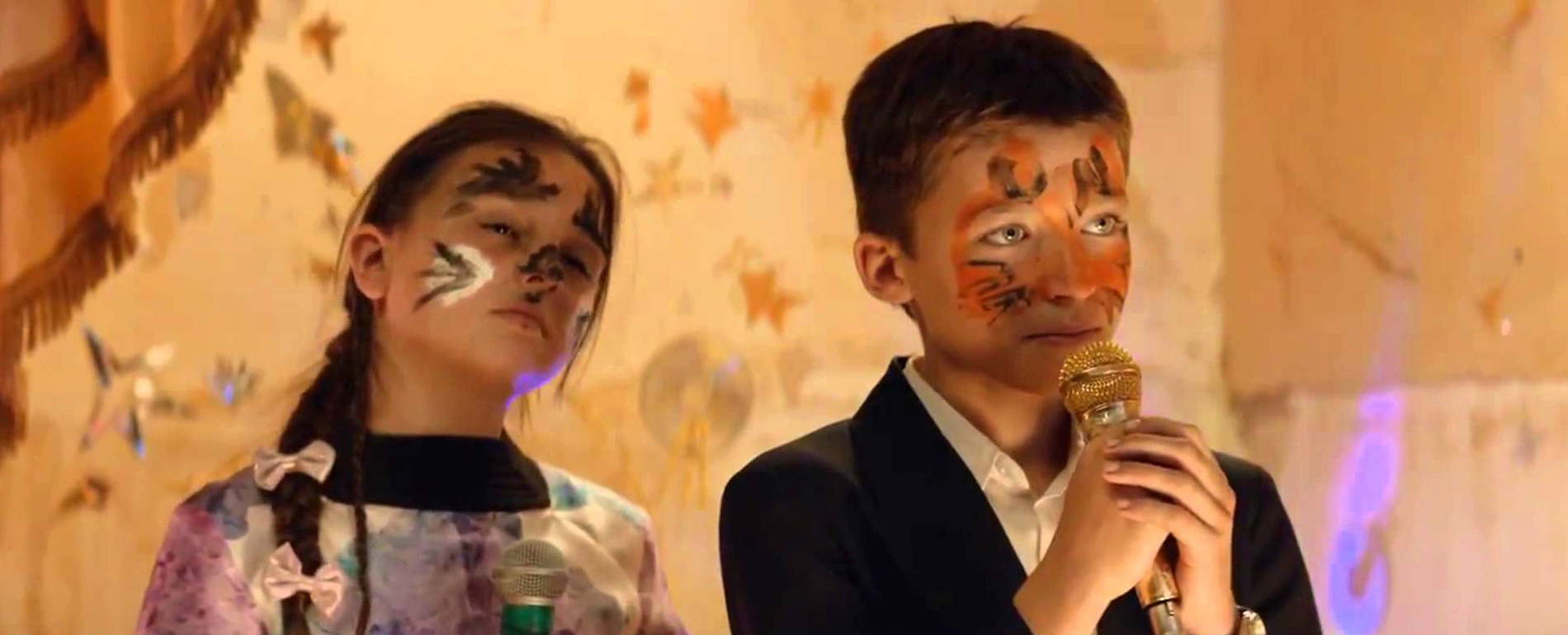
How did you find the kids, because they’re freaking awesome.
[laughter] It was tricky. We just tried to see as many children as we could. The most challenging part as part of creating what we dubbed the nowhere land or a middle Europe, was looking for kids in Australia, or Melbourne more specifically, who didn’t have Australian accents. And one thing that I learnt on this film was that kids actually pick up accents incredibly quickly. I met this kid Matteo who just came from Italy, and a week later, he’s fully Ocker [chuckles].
It was really challenging, but in the end we were very lucky we found a group of incredibly imaginative and bright kids. Lots of big personalities, and the trickiest by far was casting the role of Alexander because he’s in every scene in the film. He has to go head to head and take on Vincent Cassell – one the most magnetic and charming actors around. So it was really daunting, but in the end we found Jeremy Chabriel through a school in Sydney – a French language school – and he just came for an audition. I actually watched his tape in Melbourne, and it was filmed on this really cruddy video camera, but his eyes just kind of popped through the screen. It was pretty impressive. And he carried himself with this stillness and maturity and inner strength that seemed very rare for his age. It didn’t take us long to know he was the guy.
As you say, going up against Vincent, that’s no mean feat and it’s something that a lot of fully grown actors haven’t done an amazing job with over the years. In the case of Alexander, what were the toughest sequences of the film to prepare him for?
It’s funny because probably if I told you the most challenging scene for him you might be surprised. Going behind the scenes of the movie there are all these different factors, like for instance in the scene where’s sitting with the boy on the hill at the end. He meets that little boy from the outside world, who is interested in Alexander’s pistol. That scene, for instance, we filmed in Georgia. It was scripted as summer, but in Georgia we shot in the winter. Those two kids had to sit there in like two degree temperatures in t-shirts. If you ask Jeremy, he’d probably say that was the hardest of the film, even though it wasn’t that challenging emotionally.
But there are also scenes like the chicken incident [you’ll know it when you see it – Ed.].
Probably a combination of Vincent being quite physical and me liking to do a lot of takes resulted in it being a challenging scene for Jeremy. But he’s an amazingly mature and disciplined young boy. There are many times throughout the shoot where he was way more disciplined, and dedicated, and mature than Vincent and I, I think.
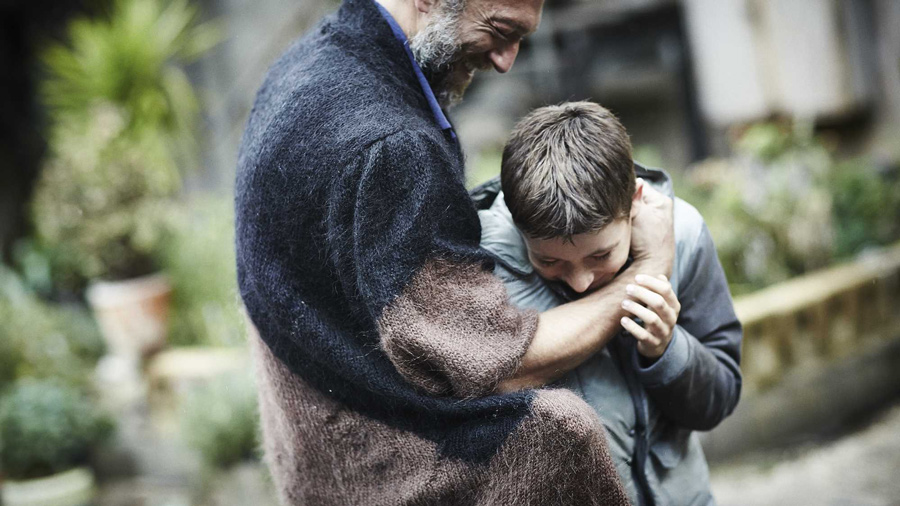
Not to accuse you guys of running a brainwashing ring of kids, but I couldn’t help thinking the way that Gregori treats them with a really adult level of respect is also the same way you get the best performances on set.
Yeah, exactly. It’s 100% right. It’s the first time I’ve worked with kids on this level. And going into it, I thought of all these tricks. I thought I had all these tricks to get the right performance that I wanted out of them. And I learnt very quickly that these kids are so smart, and the second you’re being bogus with them or trying to trick them they just smell it, and really what I found was the best way to work with them was just to be 100% honest with them, and tell them what the scene was about and what it required. They had such amazing imaginations that they just did it.
Speaking of imaginations – just going right back to the earlier stages of this project – what was the first images or concepts that came to mind for you when you started developing the idea?
Interestingly, every film I’ve made has been sparked by a surreal image. In this case, it was the same, it was the image of a child or a young boy gunning down a man. It was an incredibly bizarre and absurd image in a way. And that image came to us from an article we read about child assassins in Columbia. I just couldn’t shake it from my brain. That was very much the spark. And then totally randomly I came across a quote by my filmmaking hero Luis Buñuel, and he had a quote that said something like, “I couldn’t picture a more surreal image than a man shooting another man.” And when I read that I knew we had to made a film about this.
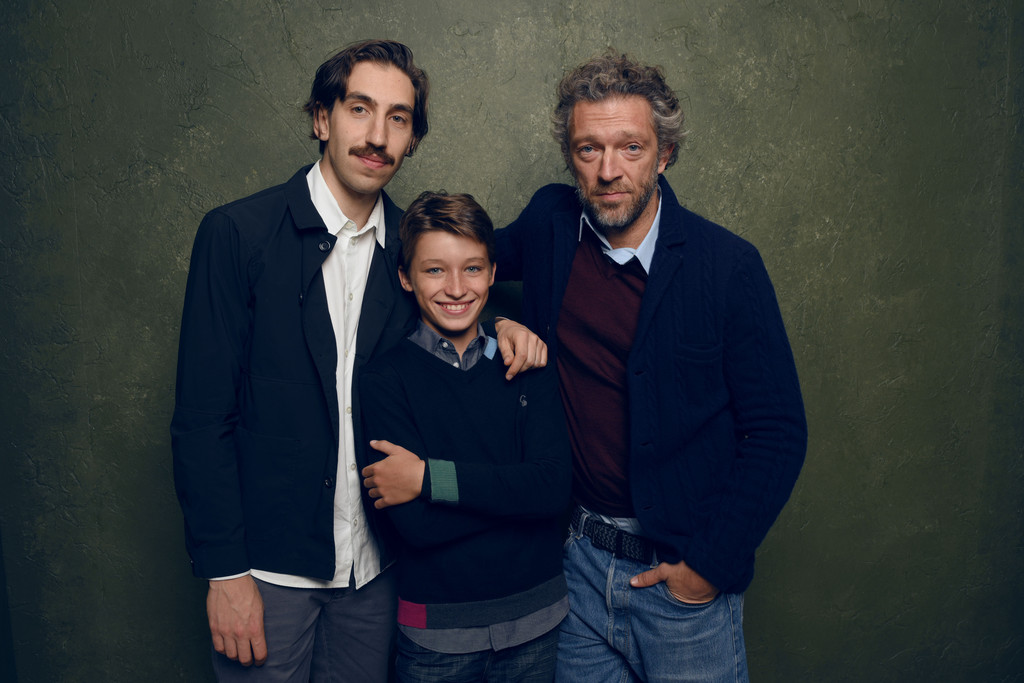
This is your first feature. Did this start as something that you looked at as a short film initially, or did you know there was more meat on the bone here?
It was always conceived as a feature. Just felt it was such a meaty and fertile ground for a feature film that I never thought about making it a short.
There’s obviously a lot of artistic reasons why it’s in a such non-specific location, but as an Aussie filmmaker, do you feel that there’s any pressure to set stories in Australia and make them as Australian character-based as possible?
I don’t feel that pressure to be honest. For me, I feel the setting should come from the story and the themes of the film. In the case of Partisan, it wasn’t that I didn’t want to set it in Australia specifically, it’s that I didn’t want to set it anywhere. From the start, we wanted to set it in this nowhere land. And it was important to me to tell the story in an impressionistic way and to let the audience know that the film is not meant to be read or understood literally. It’s a fable, and I kind of encourage audience to think about it that way.
Where and when to see ‘Partisan’ during NZIFF


















